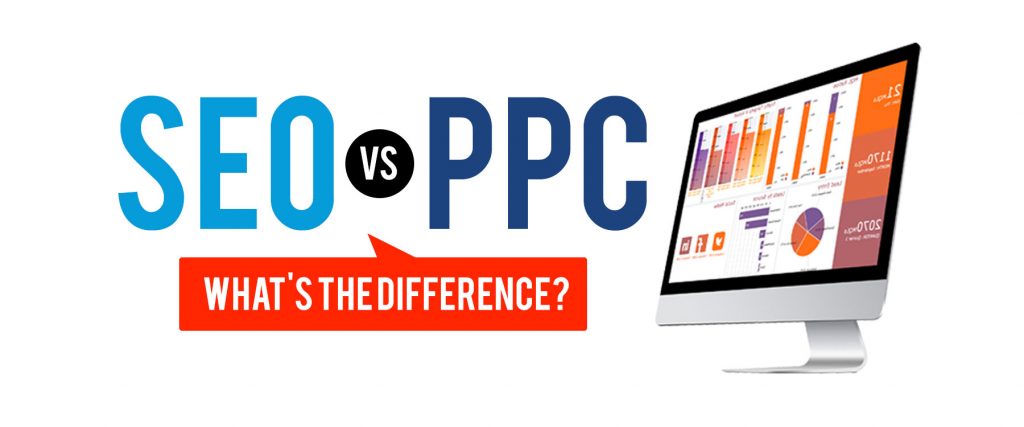Search engine optimization and pay per click marketing both have the same general goal. To get more traffic to your website. However, the two strategies are very different in their approach. To begin, let us start by establishing the focus of each marketing strategy.
What is SEO?
SEO services aims to boost your organic search traffic. This is done by targeting specific keywords and phrases that users are likely to search for. Most websites will research and devise a content plan based around these keywords. Using these words to help guide the direction of the content toward topics potential users would be interested in.
Content focused on SEO will also take advantage of all the factors that search engines use to rank websites. This includes use of media, mobile-friendly design, bounce rates, and links. Using SEO factors technically has no financial cost. It is more about how you style and implement your work.
What is PPC?
PPC marketing requires more of an initial investment. Successful digital marketing campaigns will have a plan. The plan will focus on who the target of the advertisement is, when to show the ad, and where to show the ad.
After a plan is established, the advertisements are promoted to users online. The buyer then pays for the ads on a “pay per click” model. In a way, it is a shortcut to gaining website traffic outside of organic search results.
What is the difference between SEO and PPC?
SEO marketing can help increase your global reach. Building a high search rank takes time, and the results will be less immediate. But the end result can be hugely impactful.
Once a website is established in the top results, maintaining steady web traffic is much easier. SEO almost guarantees views on a daily basis. Especially if the content is globally targeted. Unlike PPC which might only run during specific hours, SEO can gather new users constantly. All while doing this for little to negligible cost.
With PPC, the chance of much more immediate returns is higher. Although, the success still depends on market research and strategic planning. If implemented correctly, PPC can be well worth the initial investment and much more.
A paid ad can appear at the top of search results before any organic results. Even though the result will be labeled as an ad or promotion, if the content is valuable it can still generate strong web traffic. PPC is not a shortcut to success. Quality content is still fundamental to success. But, using ads can help small websites establish credibility when struggling to hit the top search results early on.
Successful conversion rate
You may wonder which strategy is more successful in reaching conversions. In general, PPC marketing has the potential for more successful conversion. Keep in mind, the results depend on many factors.
With PPC, ads tend to be specifically targeted towards certain users. If designed correctly, a PPC marketing campaign will draw the attention of potential consumers. These consumers should already have established interest in the content. Therefore, a conversion off an ad is more likely.
For SEO, there is a good chance a website will attract users outside of the targeted keywords. This isn’t necessarily a bad thing. It is not uncommon to come across a website that wasn’t exactly the results you were looking for. But given that, the visitor will likely be “browsing” around.
When discovered organically, the intention of the visitor could be for many different reasons. Meaning the overall traffic will be higher. But it is likely the conversion rate will be lower as well. Compared to the highly targeted format of PPC.
PPC and SEO marketing for the win
Both PPC and SEO marketing are important factors in building a successful website. Consider the differences carefully when exploring digital marketing services. When used together, PPC marketing and SEO strategy can build a foundation for huge success. Even the smallest startup can find itself competing effectively against the biggest competition.
Want to unleash your online potential with our digital marketing strategies? Get a proposal today.


